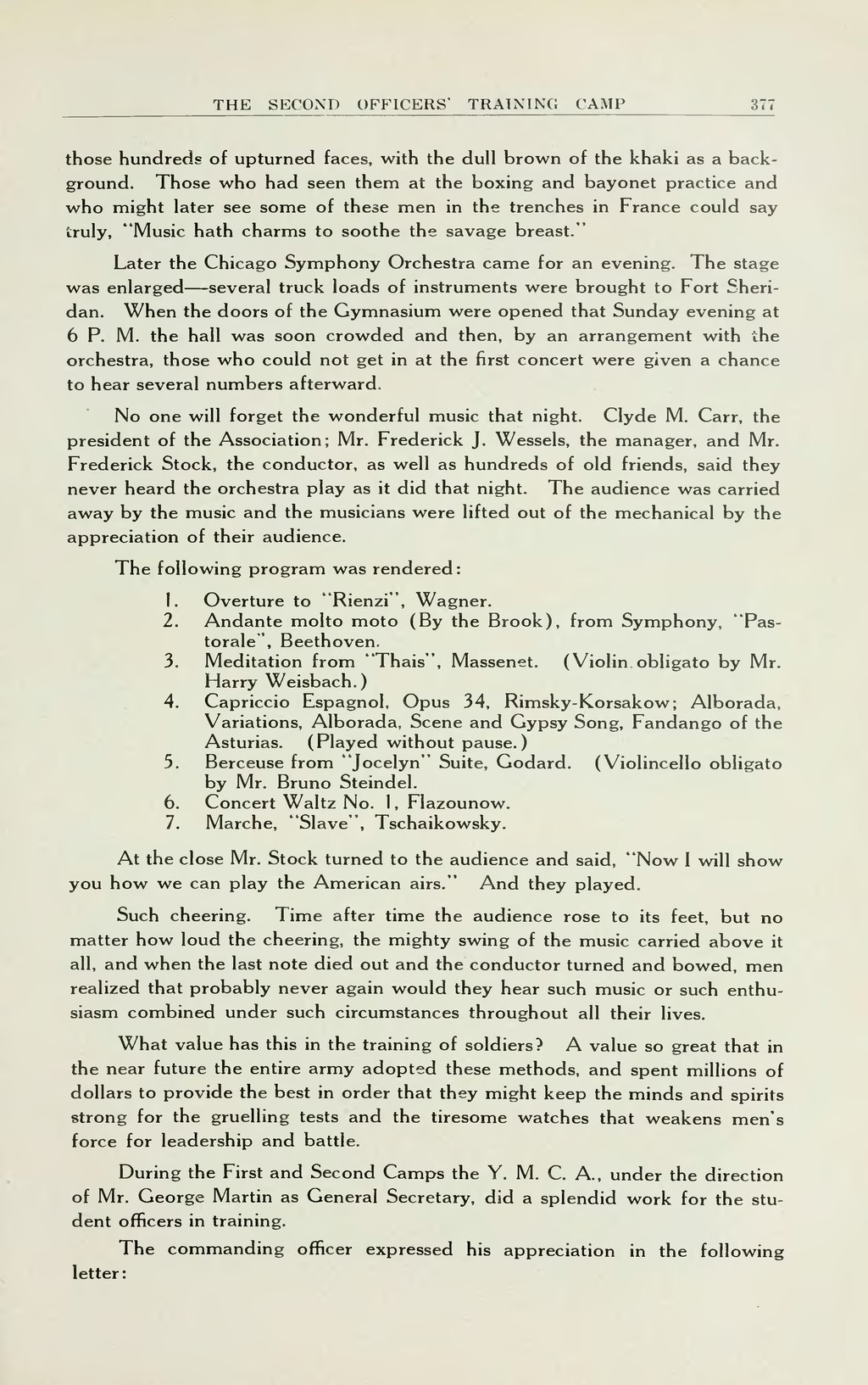those hundreds of upturned faces, with the dull brown of the khaki as a back- ground. Those w^ho had seen them at the boxing and bayonet practice and who might later see some of these men in the trenches in France could say truly, "Music hath charms to soothe the savage breast. "
Later the Chicago Symphony Orchestra came for an evening. The stage was enlarged — several truck loads of instruments were brought to Fort Sheri- dan. When the doors of the Gymnasium w^ere opened that Sunday evening at 6 P. M. the hall w^as soon crowded and then, by an arrangement with the orchestra, those who could not get in at the first concert w^ere given a chance to hear several numbers afterward.
No one will forget the wonderful music that night. Clyde M. Carr, the president of the Association; Mr. Frederick J. Wessels, the manager, and Mr. Frederick Stock, the conductor, as well as hundreds of old friends, said they never heard the orchestra play as it did that night. The audience was carried away by the music and the musicians were lifted out of the mechanical by the appreciation of their audience.
The following program w^as rendered:
1. Overture to "Rienzi", Wagner.
2. Andante molto moto (By the Brook), from Symphony, "Pas- torale", Beethoven.
3. Meditation from "Thais ', Massenet. (Violin, obligato by Mr. Harry Weisbach.)
4. Capriccio Espagnol, Opus 34, Rimsky-Korsakow^; Alborada, Variations, Alborada, Scene and Gypsy Song, Fandango of the Asturias. (Played w^ithout pause.)
5. Berceuse from "Jocelyn" Suite, Godard. (Violincello obligato by Mr. Bruno Steindel.
6. Concert Waltz No. 1 , Flazounow^.
7. Marche, "Slave", Tschaikowsky.
At the close Mr. Stock turned to the audience and said, "Now I will show you how we can play the American airs." And they played.
Such cheering. Time after time the audience rose to its feet, but no matter how loud the cheering, the mighty swing of the music carried above it all, and when the last note died out and the conductor turned and bowed, men realized that probably never again would they hear such music or such enthu- siasm combined under such circumstances throughout all their lives.
What value has this in the training of soldiers? A value so great that in the near future the entire army adopted these methods, and spent millions of dollars to provide the best in order that they might keep the minds and spirits strong for the gruelling tests and the tiresome watches that weakens men's force for leadership and battle.
During the First and Second Camps the Y. M. C. A., under the direction of Mr. George Martin as General Secretary, did a splendid work for the stu- dent officers in training.
The commanding officer expressed his appreciation in the following letter:
�� �
